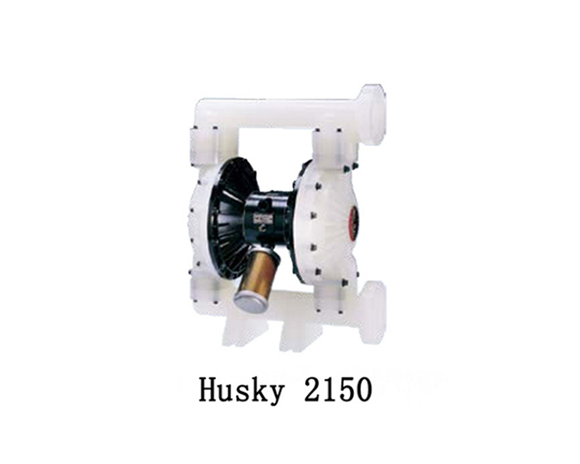Pneumatic pumps produced by pneumatic pump manufacturers, as a type of pump driven by air pressure, have the advantages of simple structure, small volume, light weight, convenient use, and simple maintenance. They are suitable for conveying various complex working conditions and media. With the development of technology, the performance and reliability of pneumatic pumps will continue to improve, providing better solutions for liquid transportation in various industries.
Pneumatic pumps can be divided into two types based on the structural form of the pump body: ball valve pneumatic pumps and diaphragm pneumatic pumps. Ball valve pneumatic pump is a pump that opens and closes the ball valve through changes in air pressure inside the pneumatic piston chamber, thereby achieving the suction and discharge process of the pump. The diaphragm type pneumatic pump controls the movement of the gas-liquid diaphragm through a directional valve, achieving the suction and discharge process of the pump. Due to its simple structure and easy maintenance, diaphragm pneumatic pumps are widely used in the industrial field.
What kind of working environment is pneumatic pump suitable for?
1、 Corrosion resistance. Pneumatic pumps are usually made of stainless steel or other anti-corrosion materials, making them suitable for corrosive environments. For example, in the chemical industry, petroleum industry, pharmaceutical industry, etc., the medium is usually a highly corrosive liquid or gas. Traditional electric pumps are prone to corrosion and damage, while pneumatic pumps can effectively solve this problem.
2、 Suitable for flammable and explosive environments. Pneumatic pumps are powered by compressed air and do not require power, making them safer and more reliable to use in flammable and explosive environments. For example, industries such as petroleum, chemical, and paint spraying all have potential explosion hazards. Traditional electric pumps have safety hazards such as electric shock and sparks, while pneumatic pumps, due to the lack of power, do not produce sparks, greatly reducing the risk of explosion.
3、 Suitable for high temperature environments. The rigid plastic pump body and metal parts of the pneumatic pump can withstand high temperature media. For example, in industries such as steel and metallurgy, the temperature of liquids is usually high, and electric pumps are prone to failure in high-temperature environments. However, pneumatic pumps, due to the lack of motors, can adapt to the requirements of high-temperature environments.
4、 Suitable for low temperature environments. Pneumatic pumps are suitable for low-temperature environments as they use compressed air as the power source and are not affected by temperature changes. For example, in industries such as cold storage and cold chain logistics, traditional electric pumps are prone to problems in low-temperature environments due to the characteristics of the motor, while pneumatic pumps can work normally.
One of the advantages of pneumatic pumps is their self suction performance. Due to the pneumatic pump being driven by air pressure, the self suction height of the pump can reach 5-8m, which can meet the needs of general liquid transportation. In addition, due to the fact that pneumatic pumps do not require electric drive, they are suitable for places with complex operating environments or no power supply, and can be widely used in outdoor operations, areas away from power sources, and hazardous environments.
Pneumatic pumps have a wide range of applications in industry. In the field of chemical engineering, pneumatic pumps can be used to transport various corrosive and highly viscous media. Secondly, in the petroleum industry, pneumatic pumps can be used for pumping operations in oil fields, achieving circulation systems for drilling fluids and transporting crude oil. In addition, pneumatic pumps can also be used in the transportation and processing of liquids in fields such as food and medicine.
